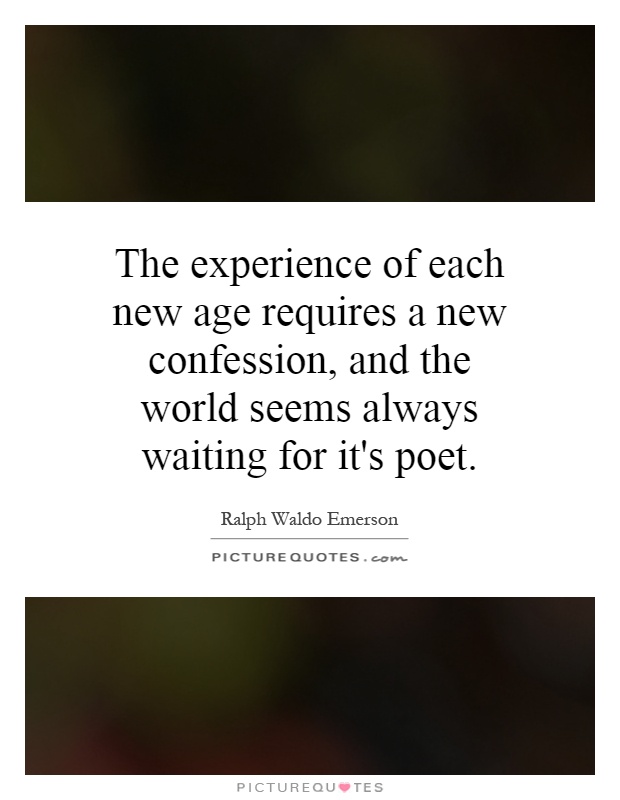The experience of each new age requires a new confession, and the world seems always waiting for it's poet

The experience of each new age requires a new confession, and the world seems always waiting for it's poet
Ralph Waldo Emerson, a prominent figure in the transcendentalist movement of the 19th century, believed in the power of individualism and self-reliance. He often spoke about the importance of embracing change and growth, and how each new age brings with it a need for a new confession. In his essay "The Poet," Emerson explores the idea that the world is constantly evolving and that it is the poet's role to capture and express the spirit of the age.Emerson believed that the poet is a visionary who is able to see beyond the surface of things and tap into the deeper truths of existence. The poet is not just a creator of beautiful words, but a seer who can reveal the hidden connections between the self and the world. In this sense, the poet is a confessor who articulates the unspoken thoughts and feelings of society.
Emerson's assertion that each new age requires a new confession speaks to the idea that as the world changes, so too must our understanding of it. The poet is the one who can articulate this new understanding and help us make sense of the complexities of the modern world. In a time of rapid technological advancement and social change, the poet's voice becomes even more essential in helping us navigate the uncertainties of the present moment.
Emerson believed that the world is always waiting for its poet, someone who can capture the essence of the age and express it in a way that resonates with others. The poet is a beacon of light in a world that can often feel dark and confusing. Through their words, poets can inspire, challenge, and comfort us, offering new perspectives and insights that help us make sense of our lives.












 Friendship Quotes
Friendship Quotes Love Quotes
Love Quotes Life Quotes
Life Quotes Funny Quotes
Funny Quotes Motivational Quotes
Motivational Quotes Inspirational Quotes
Inspirational Quotes